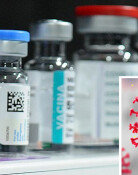S. Korea raises concerns about U.S. EV subsidies
S. Korea raises concerns about U.S. EV subsidies
Posted September. 01, 2022 07:45,
Updated September. 01, 2022 07:45
Seoul and Washington began negotiating in earnest about the U.S.’ tax credits for electric vehicles under the Inflation Reduction Act (IRA), which would put South Korean automakers at disadvantage. Expressing regret that South Korea takes electric vehicle subsidies as discriminatory, the U.S. said that it would take note of South Korea’s concerns, but it is reported that the U.S. did not provide any meaningful alternative. Analysts anticipate that measures for South Korea-made electric vehicle makers, which are relatively disadvantaged by the act, will not be prepared anytime soon.
A South Korean delegation of senior officials, headed by Deputy Trade Minister Ahn Sung-il, held a series of talks on the day with United States Trade Representative (USTR) and officials from the White House, U.S. Department of Commerce, and Congress members, including Deputy United States Trade Representative Sarah Bianchi.
The South Korean delegation requested the revision of the Inflation Reduction Act to the effect that the federal tax credits for electric vehicle makers be postponed by 2025, when Hyundai Motor completes construction of its EV plant in the state of Georgia, or the eligibility for subsidies is expanded to include not only North American car makers but also automakers of U.S.’s FTA counterparts.
The U.S. has reportedly been astonished by South Korea’s allegation that the discriminatory EV subsidy clause was in violation of the Republic of Korea-U.S. FTA and said that it is conducting autonomous investigation into the impact of the passage of the Inflation Reduction Act. While admitting that there was a lack of thorough investigation by the executive branch with regard to the clauses that may bring about adverse impact due to the expedited passage of the act, the U.S. did not suggest any alternative. In a press statement, the USTR said it had discussed with South Korea about its concerns related to electric vehicle subsidies and a relative disadvantage expected to be incurred by South Korean carmakers and that both countries would maintain close contact over the matter.
However, prospects for any practical measures to address disadvantages incurred by South Korean automakers due to the electric vehicle subsidy program of the U.S. is not positive. Hyundai Motor is ineligible for the tax credits for the electric cars assembled outside the North America region, with the operation of the IRA starting Aug. 16. The South Korean delegation returned to Korea on Wednesday. Another delegation led by Trade Minister Ahn Deok-geun, Industry Minister Lee Chang-yang, and Vice Foreign Minister Lee Do-hoon will visit the U.S. and continue negotiations.
weappon@donga.com



![[천광암 칼럼]장동혁은 대체 왜 이럴까](https://dimg.donga.com/c/138/175/90/1/wps/NEWS/IMAGE/2026/02/22/133399127.1.jpg)


![역대급 무관심… ‘국뽕’도 ‘환호’도 사그라진 올림픽[이원홍의 스포트라이트]](https://dimg.donga.com/c/138/175/90/1/wps/NEWS/IMAGE/2026/02/22/133397810.4.jpg)
